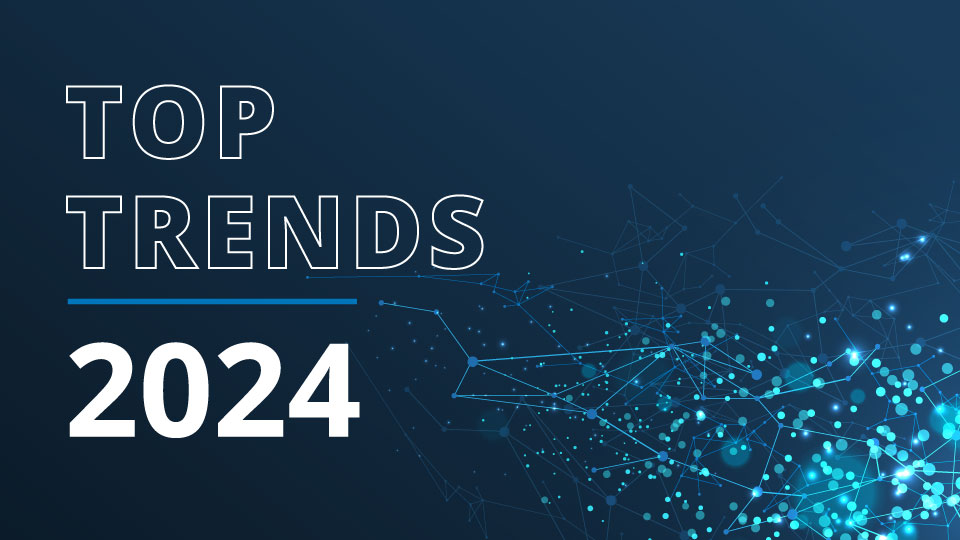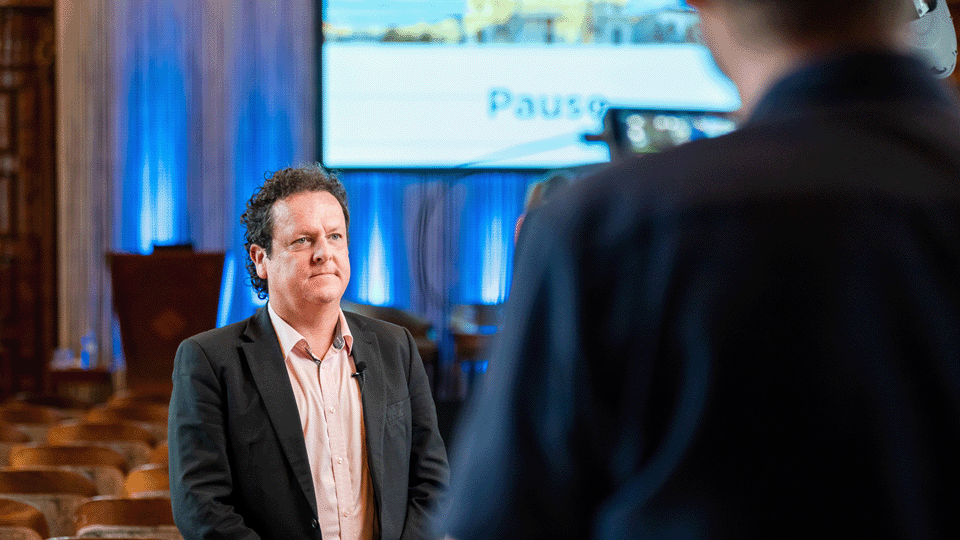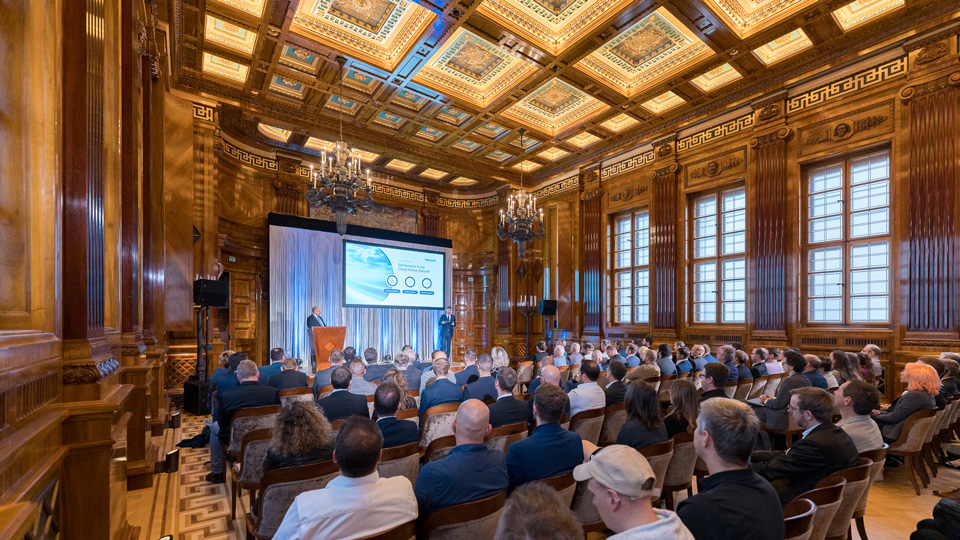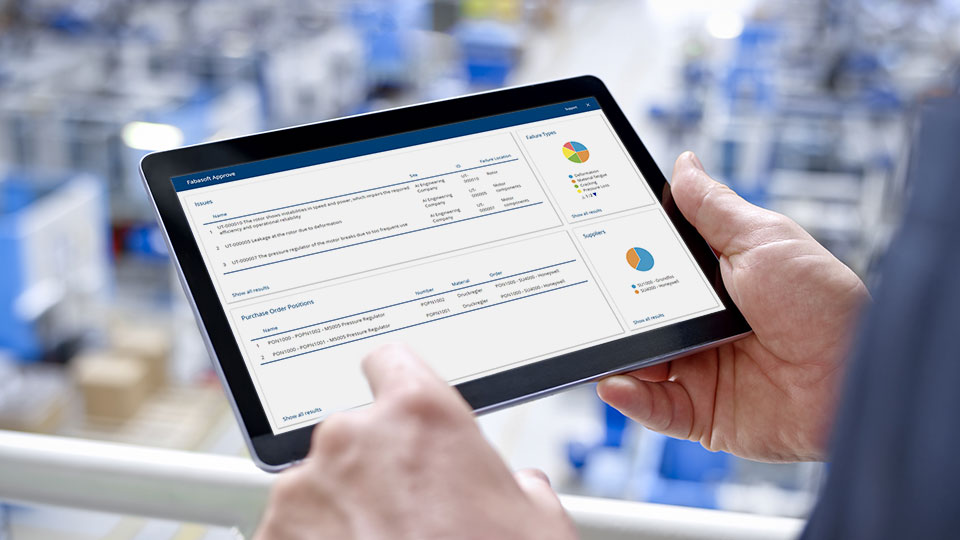The combination of technologies and the connection of people, devices, content and services forms the basis for new business models and platforms. The concept of sustainability already plays a significant role for digitization strategies and is becoming increasingly important.
From my perspective, generative AI and "intelligent applications", the Industrial Metaverse, Manufacturing-X and industrial communication are essential aspects for sustainability and generating consistent competitive advantages.
Generative AI and "intelligent Applications"
In 2023, generative AI has been the talk of the town and has become a mainstream topic. 2024 is going to be the year in which companies will become even more aware of how powerful this technology is and where it can bring benefits. According to Gartner, companies will increasingly rely on "intelligent applications", i.e. business applications that are interlinked with AI and that enrich information with data from transactions and external sources. Such software will automate and supplement activities in a wide range of application scenarios. The analysis firm expects 30% of new apps to use AI by 2026 in order to design personalized, adaptive user interfaces.
Matthew Guarini, Senior Research Director at Forrester, recommends: "While all technology leaders are jumping on the generative AI bandwagon, the winning strategy for executives is not to focus too much on the allure of generative AI. In order to harness the potential of generative AI, tech leaders must instead design their people and process changes in such a way as to complement this technology. It is important to create an environment that encourages innovation, continuous learning and a stronger alignment of technology with the overall business strategy."
Industrial Metaverse
According to the VDMA, the Industrial Metaverse is the next milestone in the digital transformation of mechanical and plant engineering and a further development of Industry 4.0. It allows the use of virtual and augmented realities in industrial production and maintenance, e.g. in order to plan, optimize or simulate production processes and increase efficiency. Prototypes can be developed entirely on a virtual basis in the Metaverse environment and contribute to resource savings along the supply chain. The technical foundation for the Industrial Metaverse is the digital twin. The latter requires a large amount of data which must be generated, transmitted and analyzed. In order to achieve this, technologies such as edge computing, cloud computing, 5G networks, Artificial Intelligence, etc. come into play.
Openness and interoperability during operation are the prerequisites for the Industrial Metaverse. In order to be able to lead companies into the Industrial Metaverse, the prior digital transformation within the company itself is key – only then can the Metaverse be realized. After all, Making good use of the Industrial Metaverse will only be possible based on the right data.
Manufacturing-X
Manufacturing-X is a cross-industry initiative for the digitization of supply chains in industry with the aim of creating a data space that enables industrial companies to digitally interconnect their data and share it along the supply chain. Apart from end-to-end data interconnection, a prerequisite for such a data space is the mutual willingness to share information. It is therefore more worthwhile than ever in digitization projects to introduce data ecosystems that are based on open standards.
Each production plant is a nodal point where materials are delivered, undergo various processing steps and are made available again as products. The same applies to the digital data describing and accompanying these physical objects and processes. Every process on the shop floor generates digital data – every product component, every supplier and every production step is a data record.
According to the "Digital Strategy Germany", "Digital cooperation is key to making supply chains resilient, increasing sustainability and resource efficiency in production and boosting the competitiveness of industry. To give an example: the digital interconnection of supply chains enables complete and traceable balancing of the carbon footprint of products across their entire manufacturing process." In the coming years, it will be important to get into "action mode" and develop concrete application scenarios for all sectors. To achieve this, it is necessary to create general "trust principles" for the exchange of information between cloud ecosystems.
Industrial communication
The application of IoT (Internet of Things) strategies is still in its fledgling stages. However, it is clear that the interconnection of different technology platforms and the analysis of data generated by IoT applications are becoming increasingly important for a company's success. Merging and analyzing product data and information about corporate core processes therefore holds great potential. Driving forward the digital transformation of business processes must therefore extend beyond the shopfloor.
The OPC UA (Open Platform Communications Unified Architecture) standard chosen by the mechanical and plant engineering industry as the preferred standard offers the best prerequisites for digitization. In addition to interconnecting machines, real-time data can be fed into the cloud with the help of proprietary data and object models that tap into the sensor data, so as to trigger e.g. cross-company quality management processes there.




